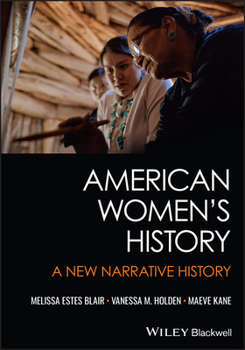American Women's History: A New Narrative History
Offers a nuanced account of the multiple aspects of women's lives and their roles in American society
American Women's History presents a comprehensive survey of women's experience in the U.S. and North America from pre-European contact to the present. Centering women of color and incorporating issues of sexuality and gender, this student-friendly textbook draws from cutting-edge scholarship to provide a more inclusive and complicated perspective on the conventional narrative of U.S. women's history. Throughout the text, the authors highlight diverse voices such as Matoaka (Pocahontas), Hilletie van Olinda, Margaret Sanger, and Annelle Ponder.
Arranged chronologically, American Women's History explores the major turning points in American women's history while exploring various contexts surrounding race, work, politics, activism, and the construction of self. Concise chapters cover a uniquely wide range of topics, such as the roles of Indigenous women in North American cultures, the ways women participated in the American Revolution, the lives of women of color in the antebellum South and their experiences with slave resistance and rebellion, the radical transformation brought on by Black women during Reconstruction, the activism of women before and after suffrage was won, and more. Discusses how Indigenous women navigated cross-cultural contact and resisted assimilation efforts after the arrival of Europeans Considers the construction of Black female bodies and the implications of the slave trade in the Americas Addresses the cultural shifts, demographic changes, and women's rights movements of the early twentieth century Highlights women's participation in movements for civil rights, workplace justice, and equal educational opportunities Explores the feminist movement and its accomplishments, the rise of anti-feminism, and women's influence on the modern political landscape
Designed for both one- and two-semester U.S. history courses, American Women's History is an ideal resource for instructors looking for a streamlined textbook that will complement existing primary sources that work well in their classes. Due to its focus on women of color, it is particularly valuable for community colleges and other institutions with diverse student populations.





